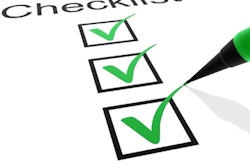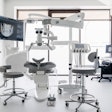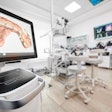
Purchasing refurbished or used dental equipment has less guidance than purchasing brand new equipment. You may be worried about the item's history and why the seller has brought it into the market. It is also natural that you will want to save funds in the whole process. After all, you wouldn't want to spend a high price on a unit that won't serve you in the long run.
However, remember to follow the right steps and don't shy away from asking the necessary questions. Otherwise, you may fall for a raw deal. The equipment may fail to work and jeopardize the success of your practice. So, what can you do to ensure the ultimate success of your purchase?
Below are five things to consider when purchasing used or refurbished equipment.
1. Check the warranty
 Ayat Huseen.
Ayat Huseen.Regardless of why a dental professional chooses to sell dental equipment, a warranty is a must. Not every seller offers a warranty for its equipment, and if so, it usually has some limits. However, other sellers will offer a full warranty for their products.
A full warranty is a form of insurance that will come in handy if the equipment fails. The seller will do repairs or replacements in case of any defect or malfunction. Simply verify the warranty with the equipment dealer or seller before purchasing.
Some secondhand equipment will include a transferable warranty from the manufacturer. To gain insight on this, obtain the warranty details from the seller -- in full.
2. Inspection and guarantee
Despite the benefits of purchasing used dental equipment, the whole process may be risky. You can never tell for sure that the item will be up for the intended task or even last long. But a seller of good faith can at least offer some guarantee that the equipment will work for the best.
The equipment should have testing and refurbishing notes to add some level of security. These notes should certify detailed and rigorous inspection and other essential details. Consider things like equipment history, missing parts, and restored components. Ask for inspection proof on all used items.
3. Shipping and storage
How the equipment is shipped and stored will go a long way in making a significant difference. If you are not picking up the device yet, ensure its storage is up to standard. Items that are not stored properly will be subject to unfavorable conditions. They may get damaged, and this may mean one thing; a shortened lifespan. Only buy equipment that is stored and handled with the care it deserves.
Shipping your equipment has a lot to do with safety, time, and costs. Some used dental equipment sellers offer shipping services and will share the burden. Yet, it is still essential to protect the investment by going for safe shipping options. These may involve quality packaging with the best transit available.
4. Bill of sale for transfer
Another step you don't want to overlook is the bill of sale for transfer. This document will detail the transfer of the equipment between the seller and the buyer. Ensure everything is duly signed and keep a copy for yourself. That way, you will handle any hurdle that may limit using the device.
In some states, it is mandatory to register some dental devices like x-ray machines. And without a valid transfer of ownership, you can never complete the registration. If you do not register, you may not be able to use the purchased unit.
5. Other factors to consider
There are other factors that you may ignore when buying used dental equipment but are vital. Some of them include needed software, training, and ongoing support. The required training and installation of the equipment will also have a significant effect.
Remember to ask the seller if you will be required to purchase new software or not. Plus, consider if you will need a professional to train your team on how to use the device. Verify if the unit includes the software, and eligibility for support from the manufacturer or company.
The bottom line
The factors to consider for a successful used dental equipment purchase are endless. Beyond price and cost-benefit analysis, everything narrows down to individual needs. Always choose equipment that will address these needs without any constraints.
Purchasing used equipment will need further inspection and research compared to purchasing brand new. However, if you follow up with the factors listed, it may save you unforeseeable hassles and restrictions.
Ayat Huseen assists dental professionals with attaining the most return on assets while reclaiming their space. As a purchasing manager, she appraises, consults, and purchases excess or unwanted dental equipment around the world. Huseen is the purchasing manager at TacomaQuickSale, a service for selling preowned dental equipment in the U.S. and Canada.
The comments and observations expressed herein do not necessarily reflect the opinions of DrBicuspid.com, nor should they be construed as an endorsement or admonishment of any particular idea, vendor, or organization.



















